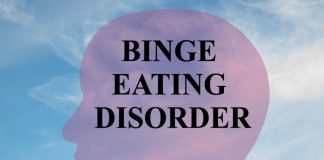Whenever someone complains of headache, it is normal to ask them if they have had enough water to drink. It is quite a popular theme recently to recommend 8 glasses of water to drink per day. Thanks to this recommendation, everyone now has a large water bottle with them at all times.
It is obvious that our bodies need water to function. After all, 72% of our body is water. The makeup of our body and the planet are similar. 72% of the planet is also covered by water. Just like the planet, our body is also a composition of the basic 5 elements – earth, air, water, fire and space. These elements are the ingredient of life itself, be it our body, the planet or the cosmos . Therefore, our well-being is directly connected to how balanced these elements are in our bodies. Water being the largest part of the mix, it is very important that we pay attention to how much water we drink and how we drink it.
Yogic science has a completely different perspective on water that medical industry is not aware of yet. The yogic perspective views water as much more than something that we use to quench our thirst. Yoga connects our individual consciousness with universal consciousness and everything in nature. Therefore it is only natural that yogic science understands how these basic elements behave within our body because this body is the vehicle through which we will experience higher levels of consciousness.
Yogic science recommends that we avoid drinking directly from the tap. The molecular structure of water changes when it travels a distance in the pipe and becomes poisonous to the body. Today modern science has acknowledged this to be true. Keeping it in a container for some time – preferably in a copper vessel – restores the molecular structure making it conducive for drinking. The best way to test this is to experiment for a few days to see if the taste of stored water (preferably in a copper vessel) is different from water drunk directly from the tap.
Recently scientists have begun to acknowledge that water has memory. If water is stored and drunk with reverence and gratitude it has a complete different impact on our bodies. Dr Masaru Emoto showed that human thought and consciousness has an effect on water through his eye opening experiments on water, published in the book “The Hidden Messages of Water”. In his experiment, he exposed drops of water to emotions of love, gratitude, anger and hatred. The molecular composition of water changed dramatically depending on the emotion the water was exposed to. Here are some images from this book.

While the implications of Emoto’s research continues to be debated, it causes us to stop and think that the behavior of water in our bodies goes far beyond our current level of understanding.
In Yoga it is also recommended to “not” drink/sip water throughout the day as it can cause psychological imbalances and swelling of the brain. So it is best to drink water when thirsty and allow the body to absorb what it needs to process and eject the toxins. The body absorbs the water efficiently when we drink water whenever we are thirsty. Not to mention drinking water throughout the day necessitates frequent bathroom breaks and can also suppress hunger. It is best to drink the quantity that you need to quench your thirst and 10 -15% more.
So how we treat these 5 elements is how they work on our system -especially water which has the largest composition of all these elements and also a memory that goes along with it. Storing and drinking water with reverence is how it acts within our body. Just by bringing awareness to this aspect and consciously managing how water behaves within us can enhance our well-being.
47 Most Famous Motivational Quotes of All-Time
49 Greatest Love Quotes
37 Inspirational Quotes that Will Change Your Life






























